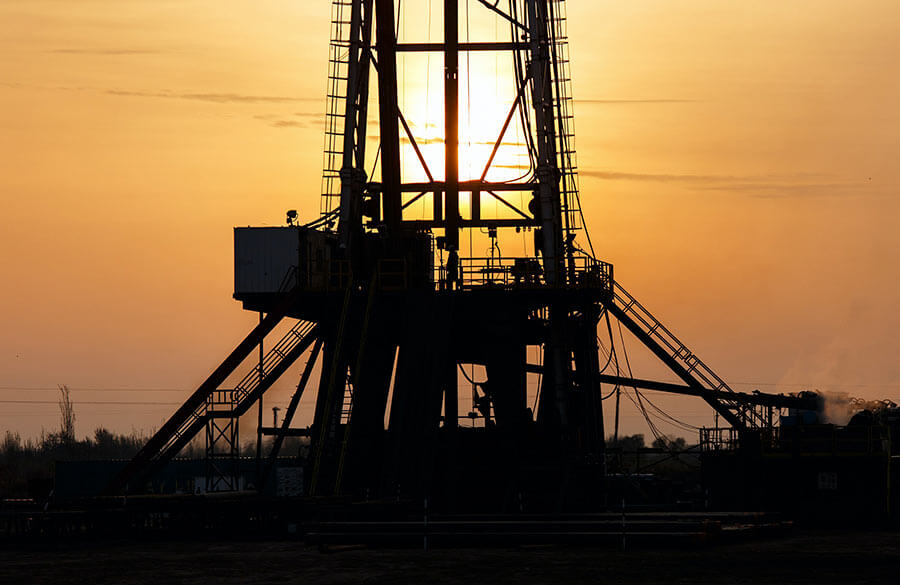Oil, Gas and Petroleum Risk Management
Oil, Gas & Petroleum industry in Australia and New Zealand
Australia’s strongly performing oil and gas sector contributes significantly to the country’s position as a leading energy exporter. The industry has been a crucial contributor to the nation’s economy for decades, contributing billions to the Australian economy annually. Many nations, including Singapore, Indonesia, and Japan, rely heavily on Australia and New Zealand’s oil and gas supply.
At Resilient Services, we can help you with:
- Emergency Management and Response Plans
- Business Continuity Plans
- Creation and testing of emergency response procedures and processes
- Crisis management and communications plans
- Development of oil and gas emergency response plans
- Emergency exercises
- Evaluation of an emergency response plan alongside the required performance standards
- Identification of the required performance standards and other critical requirements
- Preparation of oil and gas emergency procedures
- Security risk assessments
The Oil, Gas & Petroleum industry can be divided into five major segments:
Field Services Sector
The oil and gas field services sector includes any supporting activities such as site preparation and planning, plant management, construction and maintenance services to aid the extraction industry.
Pipeline Transport Sector
The pipeline transport sector involves the movement of commodities such as oil, gas, water and other materials from the region of extracted to the following stage in the supply chain.
Gas Transmission Sector
Gas transmission – which is the pipelines that take gas from the production facility at a high pressure to the end user, such as towns and industries
Extraction Sector
The oil and gas extraction sector encompasses crude oil mining, natural gas and petroleum extraction as well as the production of liquefied natural gas (LNG) and liquefied petroleum gas (LPG), which are obtained from oil and gas deposits. The sector has grown by over 8% over the past five years.
Gas Distribution Sector
Gas Distribution – which is the delivery of gas to the consumers or end users at a pressure that is lower than transmission pressures.
Australian Oil, Gas & Petroleum industry legislation
Some Australian legislation that may be applicable to your business in the oil and gas industry may include, but may not be limited to:
- Environment Protection and Biodiversity Conservation Act 1999
- Excise Tariff Amendment (Product Stewardship for Oil) Act 2014
- International Trade Integrity Act 2007
- Liquid Fuel Emergency Guidelines 2019
- Offshore Petroleum and Greenhouse Gas Storage (Environment) Regulations 2009
- Offshore Petroleum and Greenhouse Gas (Safety) Regulations 2009
- Offshore Petroleum and Greenhouse Gas (Resource Management and Administration) Regulations 2011
- Offshore Petroleum and Greenhouse Gas Storage Act 2006
- Product Stewardship (Oil) Act 2000
- Protection of the Sea (Civil Liability for Bunker Oil Pollution Damage) Act 2008
- Protection of the Sea (Prevention of Pollution from Ships) Act 1983
- Public Governance, Performance and Accountability Act 2013
- Gas Safety Act 1997
- Gas Safety (Safety Case) Regulations 2008
- Gas Safety (Gas Quality) Regulations 2007
- Pipelines Act 2005
- Pipelines Regulations 2007
- Emergency Management Act 2013 (VIC)
- Emergency Management Act 2005 (WA)
- State Emergency and Rescue Management Act 1989 (NSW)
- Disaster Management Act 2003 (QLD)
- Emergency Management Act 2004 (SA)
- Emergency Management Act 2006 (TAS)
- Emergency Management Act 2013 (NT)

New Zealand Oil, Gas & Petroleum industry legislation
Some New Zealand legislation that may be applicable to your business in the oil and gas Industry may include, but may not be limited to:
- Biosecurity Act 1993
- Gas Act 1992
- Hamilton City Council (Gas) Empowering Act 1988
- Health and Safety at Work Act 2015
- International Energy Agreement Act 1976
- Maritime Transport Act 1994
- Petroleum Demand Restraint Act 1981
- Reserves and Other Lands Disposal and Public Bodies Empowering Act 1912
- Resource Management Act 1991
- Submarine Cables and Pipelines Protection Act 1996
This list is not exhaustive, and there may be additional legislation regarding dangerous goods, mining, electricity, gas and occupational health and safety that may be applicable to your organisation’s circumstances.
Oil, Gas & Petroleum Emergency Response & Management Plans
Companies and organisations within the oil and gas industry participants must have an emergency response plan (ERP) that provides robust documentation of all arrangements and procedures that are put in place to deal with all types of potential emergencies. Every plan involves details of individual kinds of emergencies, with steps entailing the actions necessary at every stage from the detection of the emergency to its completion.

Oil, Gas & Petroleum Risk Management
The regulations surrounding the energy sector as a whole are very extensive due to the large number of risks surrounding energy production and transportation. The oil and gas companies are not excepted from this. Most of the risks faced by this industry can arise from:
- Changes in environmental and geological conditions
- Increase in production costs due to price inflation
- Lack of compliance with local and international laws and regulations
- Operational risks
- Security threats
- Unexpected disruptions to supply and demand
Business continuity plans for Oil, Gas & Petroleum companies
Timely responses to disruptions within the oil and gas industry are essential not only for reducing reputational risks, but also to avoid the incurrence of unnecessary internal and external expenditures. Business continuity plans consider the implementation, testing and continuous monitoring of processes and procedures aimed at minimising and controlling potential risks, as well as developing efficient responses and contingency frameworks. To successfully accomplish this, key activities should be identified and then be followed by an analysis of the resources and costs needed to cover them.
Business continuity plans are designed to provide businesses with contingency procedures to assist them in quickly preventing operational and financial impacts. They also aim to keep any unavoidable impacts on the business at levels that do not severely disrupt business activities. Operational impacts that involve the safety of the team, security of information and communication with key stakeholders are all considered in such plans.
Contact Us Now
Want to discover how we can assist your department with our services?
Fill out an enquiry form or call us on 0439 005 271 to find out more and to see how we can help your business prepare for the unknown.
Book your FREE 30 minutes resilience assessment now
- Discuss your challenge
- Walk away with the next steps
- You will get your situation evaluated
What our clients are saying
“It was thoroughly enjoyable to work with the team at Resilient Services. Clearly, this team is enthusiastic, enjoys what they do, and is proud of what they produce.”
Head of Corporate Risk.
Oil and Gas Producer
“What stood out about Resilient was their practical approach. Meeting the team impressed me with their focus on practical solutions rather than theoretical consultant-driven approaches.”
Geelong Port.
General Manager for Health, Safety, Environment, & Quality
“Business continuity plan is comprehensive and flawless.”
Top 4 Australian
Accounting Firm 2021

